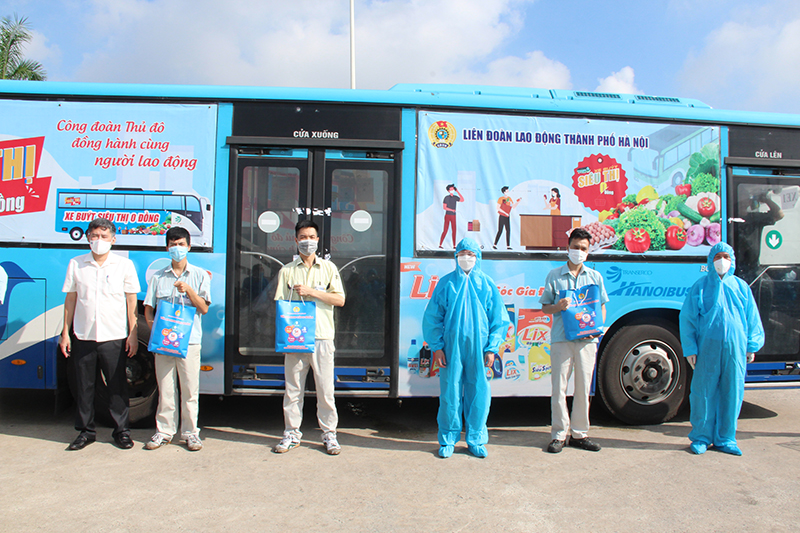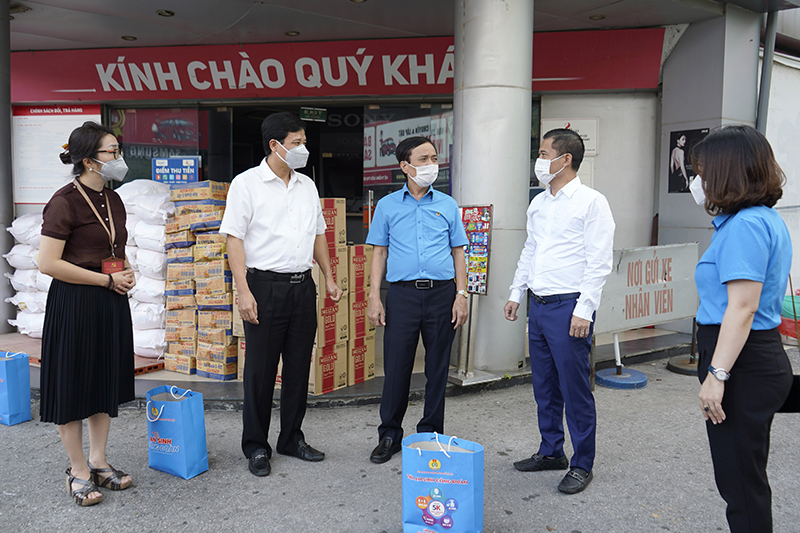Report highlights 88% of vulnerable Vietnamese households impacted by Covid-19
People working in tourism, restaurants, hotels, and passenger transportation were those hardest hit.
The Covid-19 pandemic has taken a toll on vulnerable households in Vietnam as 88% of households have suffered at least some kinds of impacts from the pandemic, according to a report released at an online conference in Hanoi on September 24.
Jointly prepared by the United Nations Development Program (UNDP), the Centre for Analysis and Forecasting, Ministry of Labor Invalids and Social Affairs (MoLISA), the report highlights the pandemic’s socio-economic damage on vulnerable households in Vietnam, with consideration also given to gender factors.
According to the report, the pandemic impacts led to an increase in temporary poverty. The most severely affected households are those in the fields of tourism, service, and manufacturing sectors, those of ethnic minority groups, those with members working in the non-official sector, or those with immigrants.
This impact assessment was conducted in early August 2021, with a view to providing an update on economic and non-economic dimensions of the well-being of vulnerable households during the pandemic, focusing on the fourth wave, which started in late April and is still going on.
Trade union officials present gifts to support Covid-affected workers in Hanoi. Photo: The Hanoi Times |
According to the report, a study conducted on 498 households shows that the economic impact is large, with 88% of households suffering from employment impacts in July 2021, and 63.5% of households experiencing an income drop of 30% or more from the pre-pandemic period (December 2019). People working in tourism, restaurants, hotels, and passenger transportation were those hardest hit.
The non-economic impact is also significant. Mental health is an urgent emerging issue, as lockdowns have been widespread and lengthy. Two-thirds (66.4%) of households worry about the impact of COVID-19. Notably, female household heads suffered a higher incidence of mental health problems (81.6%) than male household heads (62.8%).
Cutting expenditures was the most common measure employed by affected households with four in five (79.4%) affected households cutting expenditures. Most of the expenditure cuts were related to food, with 71% of affected households reducing food expenses.
Thus, food security is becoming an issue with more than half of the households (51.2%) having to reduce the amount of food served per meal, and 17.7% of households reducing the number of meals per day.
The cut in food expenses and food shortage was reported by vulnerable households, those being laid-off for months, especially migrants. A more severe situation was reported in households having small children.
The report argued that the impact of the pandemic in Vietnam is immense. In response, the support package should be adequate to protect vulnerable people from this massive economic shock. As the challenges are unprecedented, and the Government was recently given extraordinary power by the National Assembly, it can consider a new cash assistance program with a larger financial resource.
Hanoi's leaders visit businesses and workers directly affected by the Covid-19 pandemic. Photo: The Hanoi Times |
“The level of per month cash assistance should be at the “minimum living standard” defined in National Poverty Line for the duration of the lockdown period and cover all people, especially the vulnerable groups,” said Pham Minh Thu from the MoLISA.
The report also provided detailed recommendations on the target groups and ways to effectively implement the new cash assistance program, making use of digital infrastructure for immediate roll-out and accelerating the reform of social assistance policies towards a more shock-responsive and inclusive system.
UNDP Resident Representative a.i. Terence D. Jones reflected on some of the trends identified in the report and commended the Vietnamese government for the comprehensive health and social distancing measures in place to mitigate the spread and impact of the pandemic.
“UNDP shares the main findings and recommendations of the two reports, as an input to the whole of society and whole of government consideration of the next steps in coping with and moving beyond the immediate impacts of the pandemic, and so contribute to the Vietnamese government’s consideration of new policy choices and interventions to mitigate the negative impacts of the Covid-19 pandemic for the Vietnamese people and especially the most vulnerable groups,” Terence D. Jones said.
He noted that this is the second assessment that brings evidence of Covid-19 impact on vulnerable households and businesses, simulates the impact on poverty, and captures information on early recovery.
The UNDP resident representative stressed the importance of early, anticipatory, adaptive, and agile actions of the government combined with the innovation of the people as key to the country’s initial success in containing the Covid-19 pandemic and limiting its negative socio-economic impacts.












